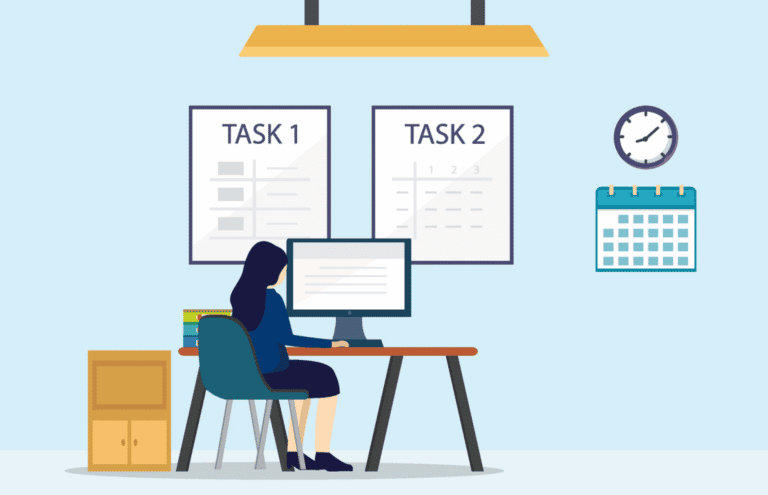In the fast-paced world of academia, where students constantly juggle classes, assignments, extracurricular activities, and social life, mastering the art of time management becomes paramount.
This comprehensive guide explores the concept of time blocking for students and its profound impact on enhancing student productivity.
Definition of Time Blocking for Students
Time blocking for students is a strategic scheduling technique that involves breaking your day into dedicated blocks of time for specific tasks or activities. It is a powerful tool for students seeking to optimize their time and efforts efficiently.
Importance of Time Blocking for Students
A student’s life is multifaceted, demanding attention to academic responsibilities, personal growth, and well-being. Time blocking for students emerges as a solution to balancing these aspects, providing a structured approach to managing time effectively.
Overview of the Benefits
Before delving into the intricacies of time blocking, it’s crucial to understand the myriad benefits it offers. The advantages are substantial and far-reaching, from improved focus and productivity to reduced stress and enhanced overall well-being.
Understanding Time Blocking
Definition and Concept
Time blocking is more than just a scheduling technique; it’s a mindset and a philosophy that acknowledges the finite nature of time and the need to allocate this precious resource intentionally. Understanding the core concept is essential for its successful implementation.
Historical Background
While “time blocking” may be relatively contemporary, the concept has historical roots in various productivity philosophies. Exploring its evolution provides insights into how this technique has been refined over time to meet the evolving needs of individuals, especially students.
How Time Blocking Differs from Traditional Scheduling
Traditional scheduling often involves creating a to-do list with tasks listed chronologically. Time blocking, on the other hand, takes a more proactive approach by assigning specific blocks of time to each task. Understanding this distinction is key to grasping the transformative power of time blocking for students .
The Science Behind Time Blocking
Attention and Focus
Delving into cognitive science, we explore how time blocking for studnts aligns with the brain’s capacity for sustained focus. By dedicating focused time to specific tasks, students can harness their cognitive resources more efficiently.
Productivity and Task Switching
The detrimental effects of task-switching on productivity are well-documented. Unpacking how time blocking for students minimizes the need for constant context-switching sheds light on why this technique is a game-changer for students.
Reduced Stress
The academic journey can be inherently stressful. Discovering how time blocking for students contributes to stress reduction through proactive time management strategies provides students with a valuable coping mechanism.
Enhanced Time Management Skills
Time management is a skill that transcends academia. Exploring how time blocking for students enhances this skill equips students with a lifelong tool for success in various aspects of their lives.
Getting Started with Time Blocking
Setting Clear Goals
Academic Goals
The foundation of effective time blocking for students lies in clearly defined goals. For students, this involves understanding academic objectives and aligning their time blocks with these goals.
Personal Goals
Beyond academics, personal growth is equally important. Time blocking for students allows them to allocate time for activities that contribute to their holistic development.
Identifying Priorities
Time blocking for students is most effective when aligned with priorities. This section explores how students can identify and rank their preferences to create a customized and effective time-blocking strategy.
Breaking Down Tasks
The granularity of task breakdown is a crucial aspect of successful time blocking. Techniques for breaking down larger tasks into manageable components are explored, ensuring that each time block is purposeful and achievable.
Practical Strategies for Effective Time Blocking
Creating a Weekly Schedule
Allocating Fixed Blocks for Classes
Academic commitments form the backbone of a student’s schedule. Allocating fixed time blocks for classes ensures that academic responsibilities are prioritized and well-managed.
Allocating Study Blocks
Study time is sacred for students.Guiding students on how to create dedicated study blocks, taking into account their individual learning preferences and peak productivity periods.
Flexibility and Adaptability
Handling Unexpected Tasks
Life is unpredictable, and unexpected tasks will inevitably arise. Guiding students with strategies for handling unforeseen circumstances without derailing their entire schedule.
Allowing for Breaks and Leisure Time
Recognizing the importance of breaks and leisure time is integral to avoiding burnout. Allowing for Breaks and Leisure time, students can integrate downtime into their schedules without compromising productivity.
Tools and Resources for Time Blocking
Digital Tools
Calendar Apps
The digital age offers an array of tools to facilitate time blocking. Examining calendar apps and their features provides students with options for seamlessly integrating time blocking into their digital lives.
Task Management Apps
Beyond calendars, task management apps offer additional functionalities that complement time blocking. These tools can enhance the overall time management experience for students.
Analog Tools
Traditional Planners
While digital tools abound, some students prefer the tactile experience of traditional planners. Exploring the benefits of using physical planners for time blocking highlights the diversity of approaches available.
Time Blocking Worksheets
Practical resources are invaluable. Providing time-blocking worksheets and templates equips students with tangible tools to implement what they’ve learned in this guide.
Overcoming Challenges
Common Obstacles to Effective Time Blocking
Procrastination
Procrastination is a perennial challenge for students. Understanding how time blocking can serve as a proactive antidote to procrastination is essential for long-term success.
Overcommitting
Students often face the dilemma of overcommitting to various tasks. This section offers strategies for aligning time blocks with realistic expectations to avoid the pitfalls of overcommitment.
Strategies for Overcoming Challenges
Time Audit
Conducting a periodic time audit is a powerful self-assessment tool. This section guides students on how to perform a time audit and leverage the insights gained for continuous improvement.
Adjusting and Iterating the Schedule
Flexibility is key to sustained success with time blocking. Teaching students how to iterate and adjust their schedules based on evolving priorities and circumstances ensures adaptability.
Success Stories and Case Studies
Real-Life Examples of Students Implementing Time Blocking
Sharing success stories creates a sense of relatability and inspiration. By showcasing real-life examples of students who have effectively implemented time blocking, this section motivates others to embark on their own time management journeys.
Positive Outcomes and Impact on Productivity
Exploring the tangible outcomes of successful time blocking, such as improved grades, reduced stress, and enhanced overall well-being, underscores the transformative potential of this technique on time blocking for students.
Tips for Long-Term Success
Periodic Review and Adjustments
Time blocking is not a one-size-fits-all solution. Encouraging students to review and adjust their time-blocking strategies regularly ensures continued alignment with their evolving goals and priorities.
Seeking Feedback and Support
Recognizing the importance of a support system, the benefits of seeking feedback from peers, mentors, or professionals who can provide valuable insights and guidance to the students about blocking time.
Staying Consistent and Building Habits
Consistency is the bedrock of habit formation. Offering tips on how to stay consistent with time blocking and turn it into a sustainable habit ensures enduring success for students.
Conclusion
Encouragement for Implementation
Providing a final push of encouragement, this section reinforces the idea that anyone can embrace time blocking and reap its rewards with dedication and consistency.
Closing Thoughts on Enhancing Productivity through Time Blocking
Concluding with reflections on the transformative potential of time blocking, this section leaves students with a sense of empowerment and the belief that they have the tools to unlock their full academic potential.
“The Art of Time Blocking: Enhancing Student Productivity” serves as a comprehensive guide that not only introduces students to the concept of time blocking but also provides them with the tools, strategies, and inspiration needed to implement and sustain this transformative practice in their academic and personal lives.

















:max_bytes(150000):strip_icc()/time-management-tips-2947336-Final-278932bab6504479a0221b1a0d5cec3b.png)


